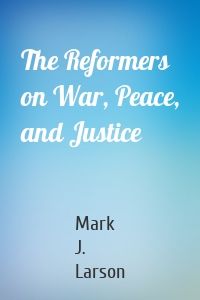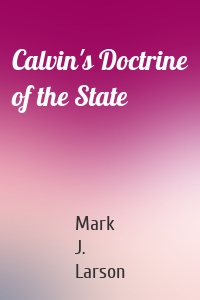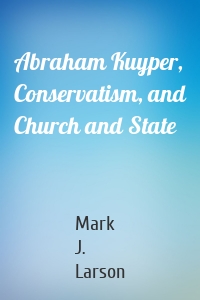Mark J. Larson
3 кн.
The Reformers on War, Peace, and Ju...
Conflict and war were common during the Reformation era. Throughout the sixteenth century, rising religious and political tensions led to frequent conflict and culminated in the Thirty Years' War (1618-48) that devastated much of Germany and killed one-third of its population. Some of the warfare, as in central and southern Europe, was between Christians and Muslims. Other warfare, in central and northwestern Europe, was confessional warfare between Catholics and Protestants. Religion was...
| Автор | Mark J. Larson |
Calvin's Doctrine of the State
Contemporary treatments of Calvin's political views often imply that he embraced a theocratic civil polity and that he was committed to holy war doctrine. On the basis of the primary sources, the first half of this volume argues that neither position is correct. Calvin, in his political thought, maintained the superiority of a republic as a civil polity. In addition, he placed himself firmly within the medieval just war tradition that was established by Augustine of Hippo and later...
| Автор | Mark J. Larson |
Abraham Kuyper, Conservatism, and C...
Students of Reformed theology recognize that Abraham Kuyper was one of the premier theologians of the last two centuries. He was also a notable politician, founding the Antirevolutionary Party and serving as a member of the Dutch Parliament and eventually becoming prime minister of the Netherlands. He produced a body of neo-Calvinist political thought that has enduring value for the political engagement of the Christian community in our time. His political theory stands in continuity with John...
| Автор | Mark J. Larson |




